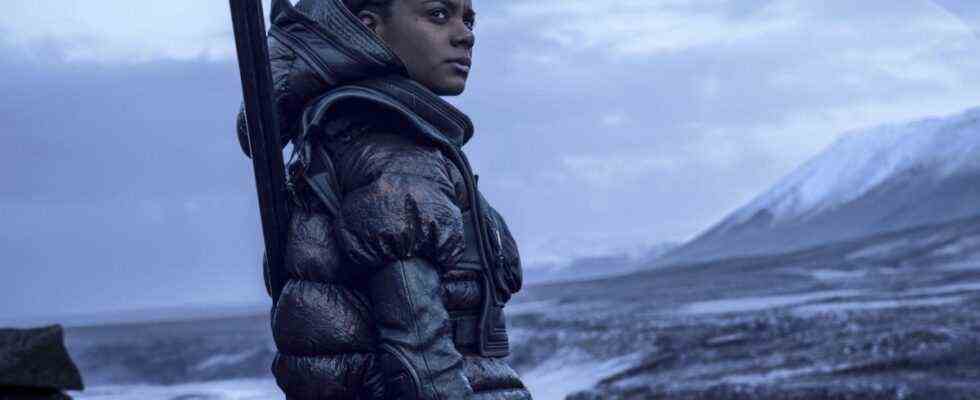One can just observe it again in the warnings of climatologists: People do not like to be heard who bring bad news. In ancient times and in the Bible, such messengers often risked their lives and were not infrequently executed. The scientist Hari Seldon from the science fiction series Foundation is a very special misfortune prophet, namely it predicts the downfall of an entire empire.
In the distant future, humanity has colonized the galaxy, the empire encompassing hundreds of planets with many different peoples and cultures. That Dr. Seldon, played by Jared Harris, has practically extrapolated the future of mankind using the fictional science of “psychohistory”, a mixture of psychology and mathematics. His result: the period of decline has long since begun, and a 30,000-year period of barbarism will soon dawn. Nobody wants to hear that, especially not the emperor, who has been cloned for generations, because like his empire he should of course last forever. He sentenced Seldon and his new assistant Gaal Dornick (great: Lou Llobell), who had just arrived on the capital city of Trantor, to death. This is supposed to be the future, but conditions like in the Bible and ancient times prevail.
Foundation is based on a series of books which the American author Isaac Asimov began in the 1940s and which forms something like the cornerstone of modern science fiction. Starwars and Dune are very obvious from Foundation influenced, and even today authors like Cixin Liu refer to Asimov as a great role model. These basic works themselves have not yet been made into a film, although they provided many ideas – galactic empires, fantastic planetary worlds – especially those of Starwars have been processed very successfully. In terms of narrative, Asimov spans the very wide range in the books, which only tell roughly coherently and are more like collections of short stories. He was inspired by Edward Gibbon’s “Decline and Fall of the Roman Empire” from the 18th century, which lasted many thousands of pages and spanned many centuries.
Lou Llobell as Gaal Dornick. She comes from a planet that has banned science.
(Photo: AP / AP / Apple TV +)
Asimov’s hero Seldon forges a great plan that will ultimately save his life: the fall of the empire cannot be stopped, but the phase between the end and the beginning of a new empire can be shortened to just 1,000 years. All that is needed is to save the existing knowledge and create an Encyclopedia Galactica. Duration: several centuries; Employees: 30,000; Costs: very high – that’s how you could sum it up, based on the way Niklas Luhmann once described his dream project in a well-known saying. The Emperor finally approves the project and suspends the death penalty. What does he have to lose? On the edge of the galaxy, where there is practically anarchy, Seldon is supposed to write his encyclopedia.
You can guess why Foundation has not yet been made into a film: no constant figures, time leaps of several decades on the first few dozen pages, plus an obscure academic project as the main topic. The Apple TV + series has therefore only taken the template as a rough framework and motif and invented most of it. The Emperor is not one person, but is represented by three clones of different ages, which is a great idea in terms of acting and filmmaking. Even the nastiest intrigues are threaded in the first few episodes. game of Thrones is here, you can tell immediately, one of the great role models of the series makers David S. Goyer and Josh Friedman.
Late Roman decadence: the ruler of the galactic empire in three ages.
(Photo: Helen Sloan / AP / Apple TV +)
you Foundation-Universum looks fantastic throughout, the series developed its very own style in the first few episodes. Most of the filming took place in Ireland and Iceland (also like game of Thrones), only some real tourist attractions like the library of Trinity College Dublin could have been alienated a bit. The world looks like a fairy tale, but the references to the present are very obvious: Politicians encounter terrorist attacks, social inequality and socially dependent regions from perplexed to brutal. There is a lack of political will for change and self-criticism, one could call it late Roman decadence.
Lately the escapist has rarely been mixed with the fantastic and the political in such a beautiful, well thought-out and skillful way.
On Apple TV +, new episodes weekly

